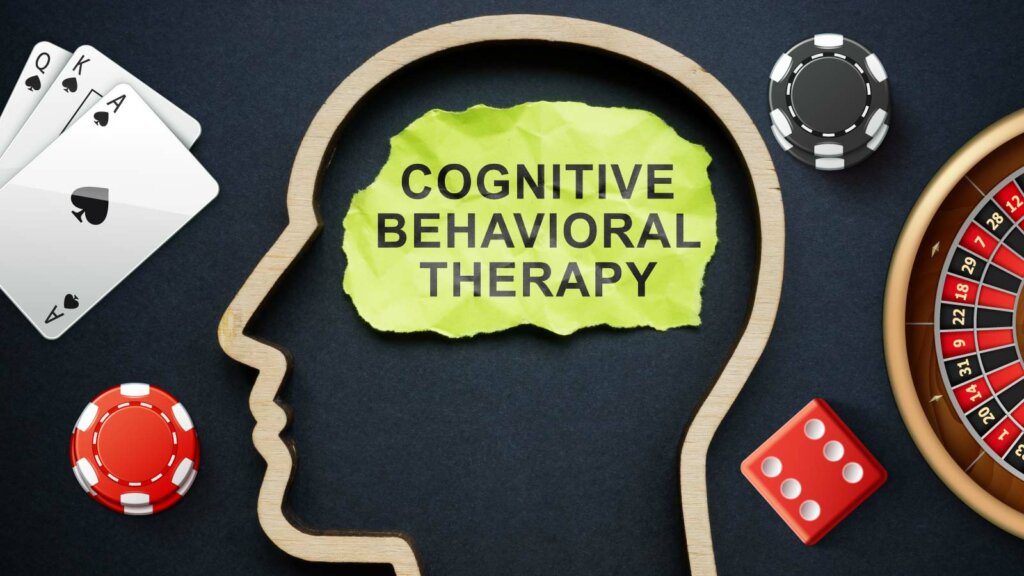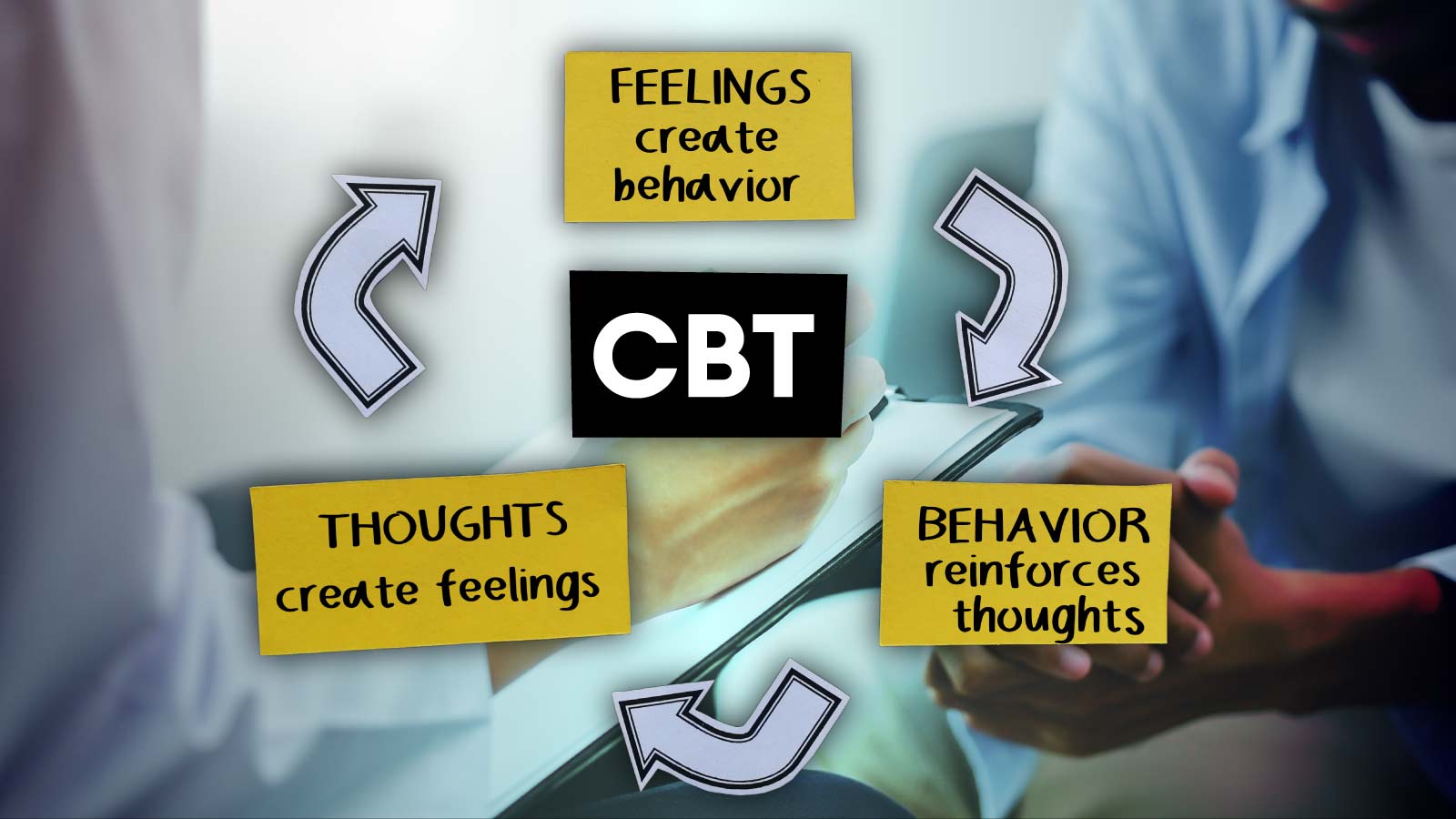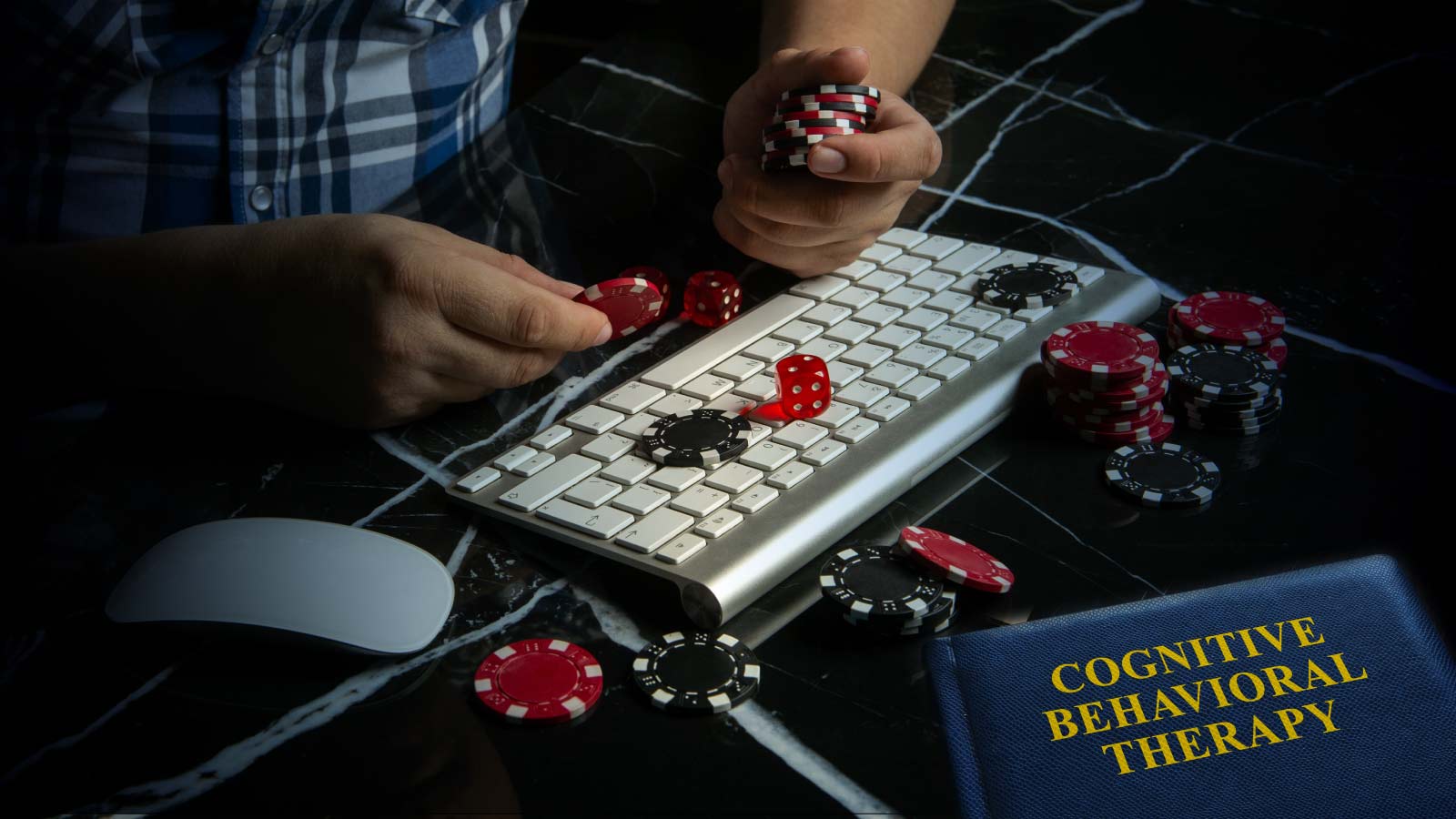
Break Gambling Habits with CBT: Exploring the Treatment for Long-Term Recovery
All the information in this page was checked by:
Every piece of information we present is rigorously verified by our team of experts using multiple credible sources, ensuring the highest level of accuracy and reliability.
We have paid partnerships with the online casino operators featured on our site. We also earn commissions when you, the user, click on certain casino links. These financial partnerships do not affect our reviews, recommendations, or analysis. We remain committed to delivering unbiased gambling reviews. For more details, visit our Advertiser Disclosure page.
CBT in gambling addiction works because the real problem isn’t luck, it’s thought patterns that trick you into chasing losses. Most people seeking help don’t realize that beliefs like “I can win it back” are cognitive distortions keeping the cycle alive. CBT targets these exact patterns with practical tools and weekly support. You’ll learn how to spot triggers and stop your gambling before it starts again.
- Understanding What Cognitive Behavioral Therapy (CBT) Is
- Overview of the Negative Effects of Gambling Addictions and Related Disorders
- Top Reasons to Choose CBT for Gambling Disorder Treatment
- The Role of CBT in Treating Gambling Disorders
- Cognitive Behavioral Therapy’s Impact on Gambling Recovery – A Summary
Understanding What Cognitive Behavioral Therapy (CBT) Is
Talking therapy, known as cognitive behavioural therapy (CBT), aids in problem management by changing thought patterns and addict behaviours. While it’s often applied to address anxiety and depression, its benefits extend to other mental and physical health issues.
Important aspects of CBT
- Primarily, the attention is on how a person’s thoughts, feelings, and actions are connected.
- It teaches strategies and skills to recognize and change troublesome thoughts, symptoms, and behaviour patterns.
- It is an effective treatment. At the moment, cognitive behavioural therapy stands out as the most effective approach for treating pathological gambling disorders. This therapy asserts that irrational thoughts related to one’s control over the game and ability to predict wins are key factors in the development and persistence of this condition.
Overview of the Negative Effects of Gambling Addictions and Related Disorders

Excessive gambling brings about harmful effects on both individuals and society. This may lead to issues like poverty, family breakdown, and resorting to illegal means to obtain money for gambling. The primary consequences of gambling disorders include:
- Job-related challenges: Gambling can cause loss of employment, compromising one’s career. As gambling takes precedence, it may result in struggle, decreased efficiency at work, and increased absenteeism.
- Strained relationships with friends or family: Compulsive gamblers often conceal their addiction, leading to the mistreatment of family members or neglecting familial responsibilities.
- Financial troubles: Individuals resort to borrowing, selling possessions, and accumulating debt to spend on their gambling addiction.
- Legal complications: Involvement in deceitful activities, forgeries, and thefts.
- Health issues due to stress: It leads to severe Insomnia, nervousness, and depression. It can make individuals experience anxiety and sometimes can ultimately escalate to suicide attempts. See more about how gambling affects your brain in our article.
Top Reasons to Choose CBT for Gambling Disorder Treatment

Studies indicate that CBT can:
- Decrease the frequency of gambling days
- Lessen the money lost during gambling
- Assist individuals in addressing gambling problems
- Offer mental health professional interventions to address gambling impulses and the addiction cycle
The main focus of Cognitive Behavioral Therapy Treatment Sessions
If Cognitive Behavioral Therapy is suggested, you will typically meet with a therapist every week or every two weeks. The treatment usually spans 6 to 20 sessions, each lasting 30 to 60 minutes. In these sessions:
- You and your therapist will break down your issues, such as your thoughts, physical feelings, and actions. Both of you will also analyze whether these issues are unrealistic or unhelpful and then understand how they influence each other and you.
- The next course of action is for your therapist to guide you in changing unhelpful thoughts and behaviors.
- Once identified, you’ll practice these changes in your daily life, discussing your progress in the next session.
The ultimate goal is to empower you to apply these skills in your daily life, managing problems and preventing them from negatively impacting you even after treatment concludes.
The Role of CBT in Treating Gambling Disorders

Approaches to tackling problem gambling through CBT often involve increasing awareness and correcting cognitive distortions or ‘faulty thinking’ about gambling. This includes replacing gambling with healthier, non-gambling behaviours and acquiring skills to prevent relapse.
CBT sessions, whether done individually or in a group, encourage clients to discuss thoughts and feelings linked to their gambling experiences. This fosters a deeper understanding of triggers, the thoughts and emotions arising from triggering situations, and how they reinforce problematic gambling behaviour. If you want to learn more about the statistics on gambling in Ireland, you can read our article.
Learning how to handle triggers and adjusting thought patterns contributes to reducing problematic behaviours. As treatment advances, therapists may prompt clients to participate in activities, reading, or exercises that build upon what was learned in counselling sessions and apply these newfound skills to their daily lives.
Let’s see how CBT works in real situations. CBT helps pinpoint situations that trigger certain thoughts, feelings, and behaviours. It is a program similar to alcoholics anonymous.
As a first example:
A common gambling myth is the belief that one can recover losses. Imagine someone checking their credit card statement and realizing they’re in significant debt. In response, they may intensify their gambling to tackle the debt.
In this scenario, receiving the credit card statement triggers fear and anxiety about the impending debt. The thought is, “I’m doomed unless I win at the casino,” and the behaviour is an increased rate of gambling.
Therapists can collaborate with the client to identify the negative consequences of this behaviour. This might include the risk of accumulating more debt, leading to increased stress and straining family relationships.
Following that, the therapist can assist the client in recognizing actions to disrupt or prevent the process at various stages. The aim is to change gambling behaviour when faced with a similar trigger in the future.
Over time, the client may acquire the ability to form more rational and balanced thoughts, like acknowledging that gambling can lead to additional debt or understanding the unfavourable odds of winning. Adopting this new perspective aids in handling triggers and breaking patterns tied to adverse gambling behaviour.
A second example:
CBT can delve into mistaken beliefs that contribute to problematic gambling. Individuals dealing with gambling issues might think:
“I’ve got luck on my side. I can overcome the odds.”
“I’m currently winning, so it’s a good moment to increase my bets.”
“I’m familiar with this slot machine inside out. It’s going to pay off today.”
“If I continue playing, I’ll recover what I lost.”
In such cases, a therapist may inquire or interact with a client about a client’s understanding of how slot machines work. The therapist probes into the odds of winning and encourages the client to elaborate on these beliefs. Bringing these beliefs into conscious awareness can instill doubts in the client’s mind, enabling her to challenge her thinking. This dialogue helps the client realize that her thoughts are ideas, not facts.
A third example:
Cognitive-behavioral therapy is effective in preventing relapse. Individuals who have successfully reduced or stopped their impulsive gambling behaviours might still require ongoing support. A therapist can collaborate with clients to pinpoint and develop coping strategies for situations or triggers that elevate the risk of problem gambling. Other organizations, such as the Gamstop tool, can also help with gambling problems.
An overview of the CBT Process:
| CBT Step | Short Description |
|---|---|
| Increasing Awareness | Identify and correct faulty thinking about gambling. |
| Correcting Cognitive Distortions | Replace gambling behaviours with healthier alternatives. |
| Managing Triggers | Recognize and manage triggers that lead to gambling. |
| Adjusting Thought Patterns | Change thoughts to reduce problematic behaviours. |
| Real-Life Application | Use CBT strategies to handle real-life scenarios and triggers. |
| Preventing Relapse | Develop strategies to cope with triggers and prevent relapse. |
Cognitive Behavioral Therapy’s Impact on Gambling Recovery – A Summary
Cognitive Behavioral Therapy is flexible, offered either individually or in a group. Additionally, there are free self-help workbooks and online tools for those aiming to cut down or quit gambling. To prevent addiction, we also recommend you check out how to control your gambling activities.
Notably, in CBT sessions, your gambling counsellor will prompt you to discuss your thoughts and feelings tied to your gambling. Throughout the treatment, your counsellor may assign “homework” like activities, reading, or practices that reinforce what you learn in your regular sessions and motivate you to apply these lessons in your everyday life.

